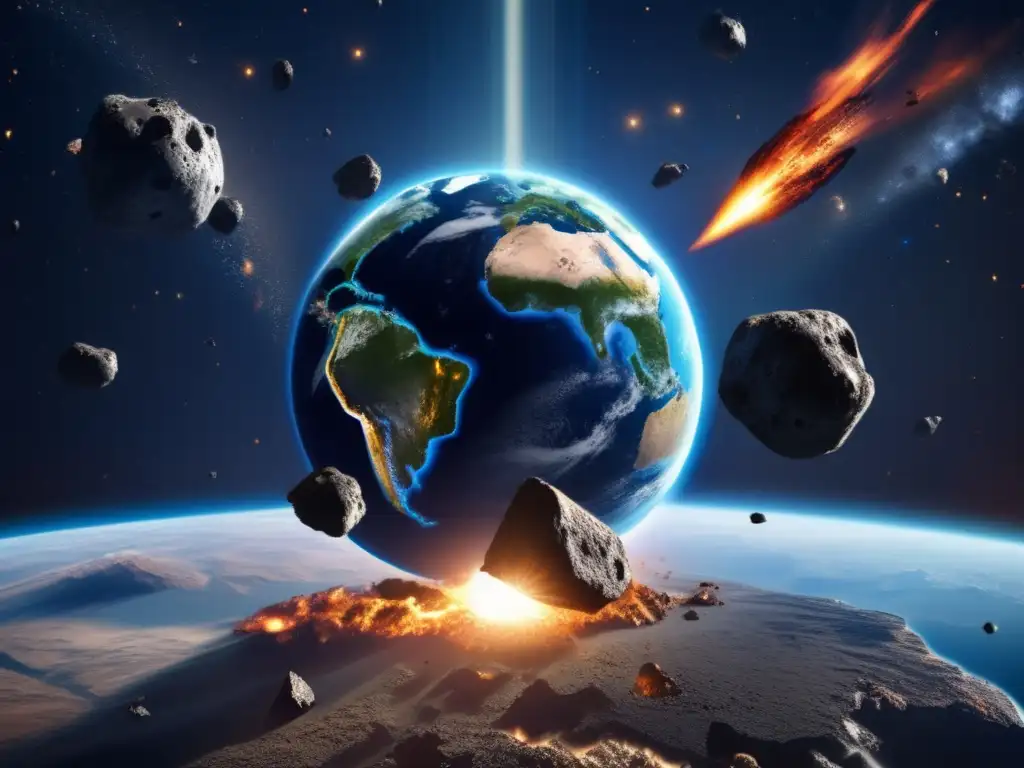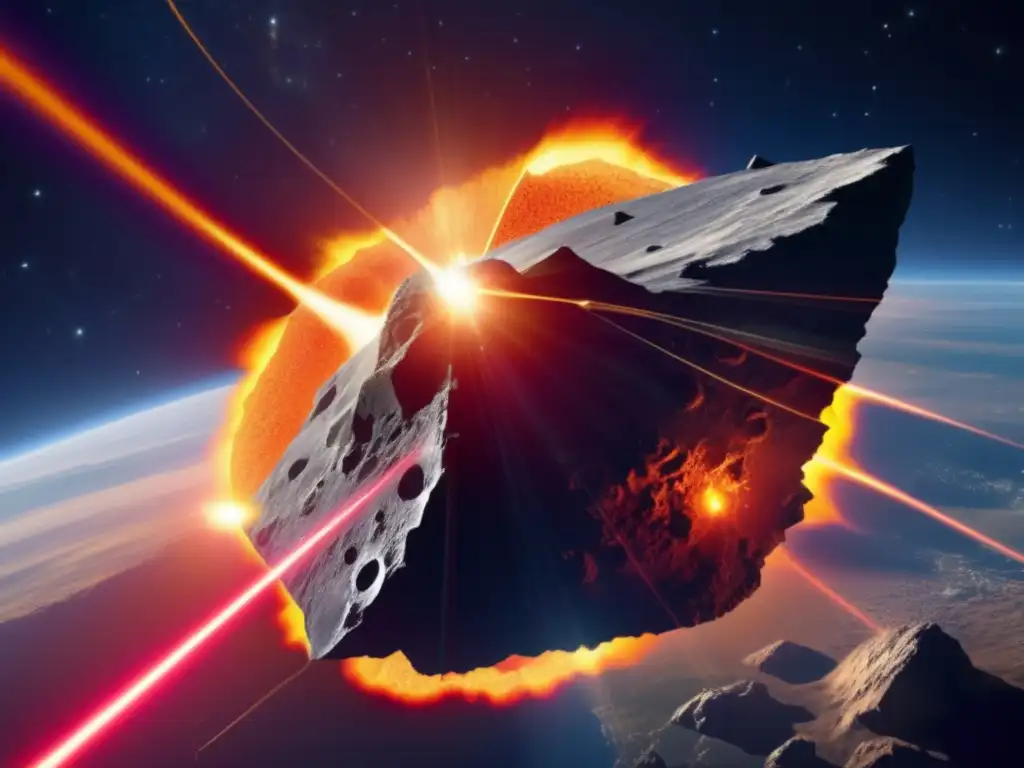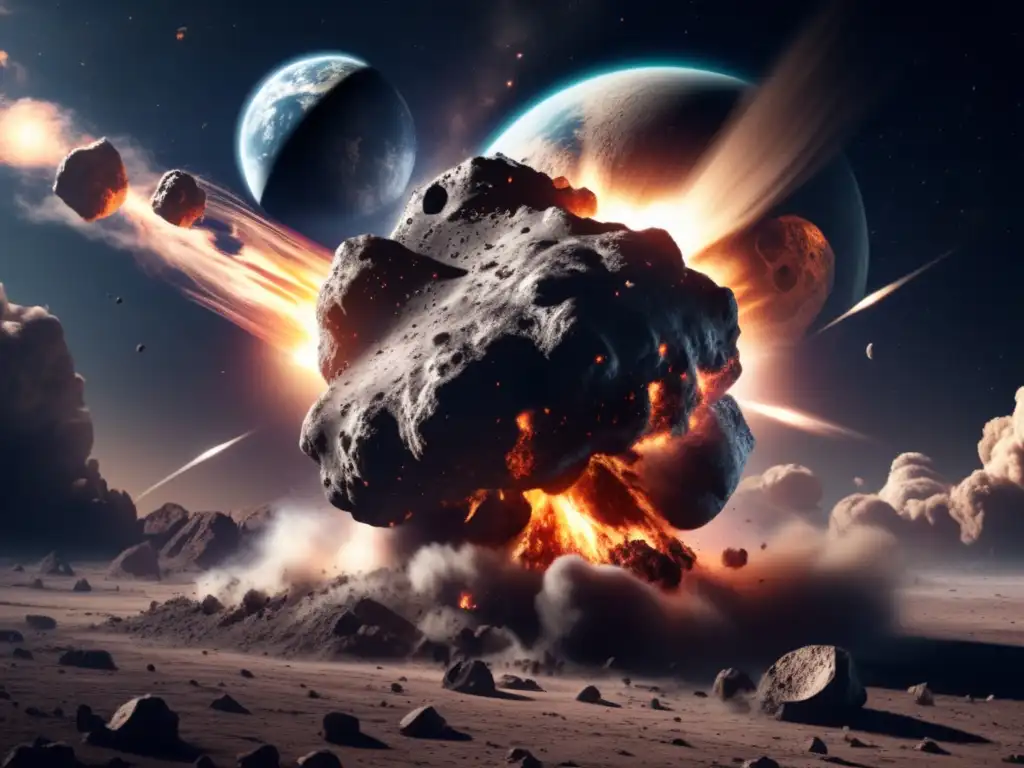In Defense Of Our Planet: Preventing Asteroid Impacts

Introduction
Asteroids are some of the most fascinating celestial objects in the universe. They are remnants of the early solar system and hold clues about its formation and evolution. However, asteroids can also pose a threat to our planet. A collision with a large asteroid could cause significant damage to Earth and potentially lead to mass extinction. In this article, we will discuss the importance of planetary defense and explore some of the measures being taken to prevent asteroid impacts.
Why Planetary Defense is Important

The Impact Threat
Asteroid impacts are rare events, but they have occurred throughout Earth's history. The most famous example is the Chicxulub impact, which is believed to have caused the extinction of the dinosaurs 66 million years ago. An impact from a large asteroid could have devastating consequences for life on Earth. It is therefore important to prepare for a potential impact and take all necessary measures to prevent it from happening.
The Need for Early Warning
The key to preventing an asteroid impact is detecting the asteroid early enough to take action. That is why there are ongoing efforts to detect and track asteroids that come close to Earth. With early warning, it is possible to deflect an asteroid away from Earth before it enters our atmosphere.
The Importance of International Cooperation
Planetary defense is a global issue that requires international cooperation. The threat of an asteroid impact affects all nations, and it is in everyone's interest to work together to prevent it. The United Nations has recognized the need for international cooperation on planetary defense and has established the International Asteroid Warning Network (IAWN) to facilitate communication and cooperation among countries.
Current Measures for Asteroid Mitigation

Asteroid Detection and Tracking
The first step in preventing an asteroid impact is detecting the asteroid as early as possible. There are several ground-based telescopes around the world that are dedicated to detecting potentially hazardous asteroids. In addition, NASA has launched several space-based telescopes, such as the NEOWISE mission, to detect and track asteroids more effectively. The data collected from these telescopes is used to determine the orbit and trajectory of an asteroid, which can then be used to predict whether it poses a threat to Earth.
Asteroid Deflection Techniques
If an asteroid is detected and deemed to be a threat, several deflection techniques can be employed to alter its trajectory and avoid a collision. One of the most promising techniques is the kinetic impactor method, which involves using a spacecraft to collide with the asteroid and change its velocity. Another technique is the gravity tractor, which uses the gravitational attraction between a spacecraft and an asteroid to gradually change its course. These techniques have been tested in simulations and could prove effective in deflecting an asteroid away from Earth.
Planetary Defense Exercises
To prepare for a potential asteroid impact, several planetary defense exercises have been conducted to test the response capabilities of different organizations. The most recent exercise was held in 2019 and involved participants from NASA, the European Space Agency, and other international organizations. The exercise simulated the detection of a hypothetical asteroid and the steps that would be taken to mitigate the threat. These exercises are important for identifying gaps in the response plan and improving coordination between different organizations.
Frequently Asked Questions

-
How likely is an asteroid impact?
The probability of a large asteroid impact is low, but it is not zero. That is why ongoing efforts to detect and track asteroids are important.
-
How much warning would we have before an impact?
The amount of warning would depend on the size and trajectory of the asteroid. With current technology, it is possible to detect and track potentially hazardous asteroids several years in advance.
-
What would happen if an asteroid hit Earth?
The consequences of an asteroid impact would depend on the size of the asteroid and where it struck. A large asteroid impact could cause significant damage to infrastructure and potentially lead to mass extinction.
-
Are there any asteroids currently on a collision course with Earth?
No asteroids are currently on a collision course with Earth. Any potentially hazardous asteroids that are detected are closely monitored to determine whether they pose a threat.
-
How can I help with planetary defense efforts?
You can support planetary defense efforts by staying informed about the issue, sharing information with friends and family, and advocating for increased funding for asteroid detection and mitigation programs.
Conclusion
Planetary defense is an important issue that requires ongoing attention and investment. While the probability of an asteroid impact is low, the potential consequences are significant. That is why efforts to detect and track potentially hazardous asteroids, as well as develop effective mitigation techniques, are crucial. By working together and investing in planetary defense, we can help ensure the safety and security of our planet and all its inhabitants.
We hope this article has provided valuable information about the importance of planetary defense and the measures being taken to prevent asteroid impacts. We encourage you to share your thoughts in the comments section and to actively participate in www.asteroidrealm.com. Thank you for taking the time to read this article.
Additional Resources

- NASA Center for Near Earth Object Studies
- European Space Agency Near Earth Objects Portal
- United Nations Office for Outer Space Affairs
 Asteroid Armageddon: Our Planetary Defense Strategies
Asteroid Armageddon: Our Planetary Defense Strategies Cosmic Shields: Techniques And Tools For Asteroid Defense
Cosmic Shields: Techniques And Tools For Asteroid Defense Defending The Cosmos: Strategies Against Asteroid Threats
Defending The Cosmos: Strategies Against Asteroid ThreatsIf you want to discover more articles similar to In Defense Of Our Planet: Preventing Asteroid Impacts, you can visit the Planetary Defense category.
Leave a Reply

Articulos relacionados: